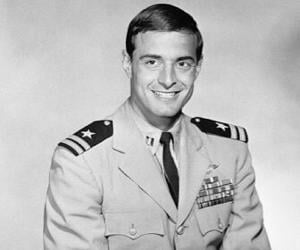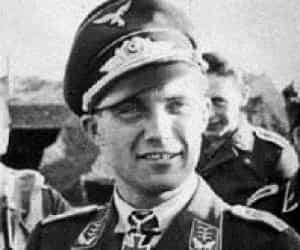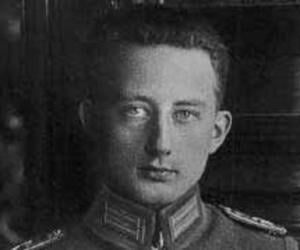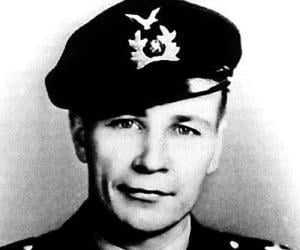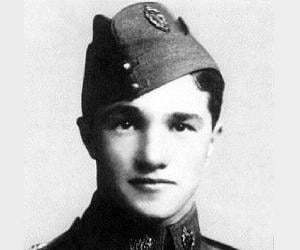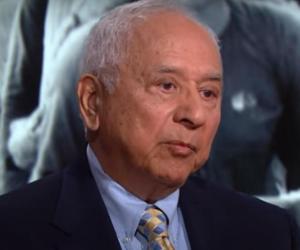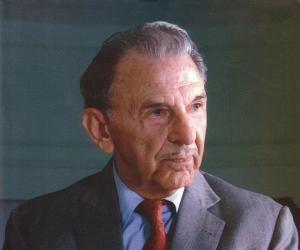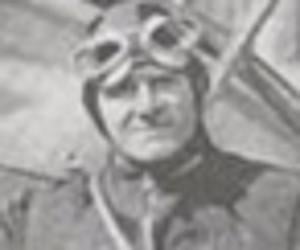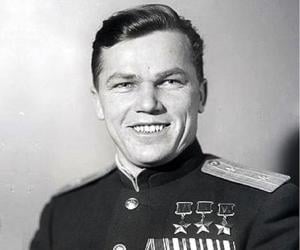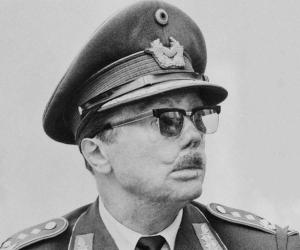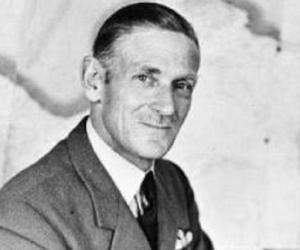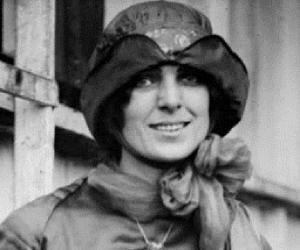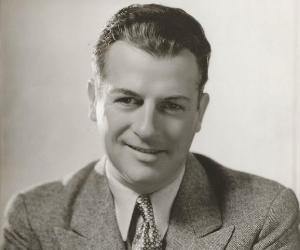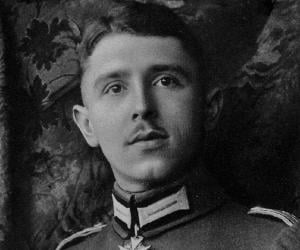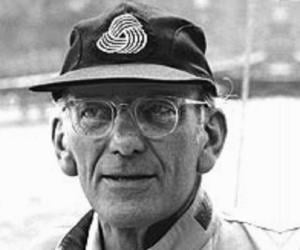Quick Facts
Died At Age: 62
Family:
Spouse/Ex-: Irene Lam (m. 1980–1984), Marina Adamich (m. 1966–1970), Yukiko Dengler (m. 1998–2001)
father: Reinhold Dengler
mother: Maria Dengler
children: Alexander Dengler, Rolf Dengler
Born Country: Germany
Aviators American Men
Died on: February 7, 2001
place of death: Mill Valley, California, United States
Diseases & Disabilities: Amyotrophic Lateral Sclerosis
Ancestry: German American
Cause of Death: Suicide By Firearm
More Facts
awards: Distinguished Flying Cross
Purple Heart
Air Medal
Navy Cross
Childhood & Early Life
Dieter Dengler was born on May 22, 1938 in Wildberg, in the Black Forest region of Baden-Württemberg, Germany and was raised by his mother alongside his brothers. He did not know his father, who was forced to join the German army when he was an infant and was killed during World War II on the Eastern Front during the winter of 1943-44.
Growing up in extreme poverty, he and his brothers used to collect wallpapers from bombed-out buildings to extract the little nutrients left in the paste and also scavenged the nearby Moroccan camp for leftover food. He also scavenged for scraps and had built a bicycle for himself, becoming the first in the town to own one.
At the age of 14, he started working as an apprentice to a blacksmith, working six days a week building giant clocks and clock faces to repair German cathedrals. Despite the fact that he was regularly beaten by the other boys and the blacksmith was harsh and strict, he thanked him later for teaching him to be “tough enough to survive”.
As a boy, he had determined to become a pilot after witnessing an Allied fighter plane firing its guns and flying very close to the window he was watching from in his hometown. After he saw an advertisement for pilots in an American magazine, he started salvaging scrap metals to sell, and completing his apprenticeship at 18, hitchhiked to Hamburg to set sail for New York City.
Captivity & Escape
After spending some time at Dixie Station, off South Vietnam, Dieter Dengler moved to Yankee Station for operations against North Vietnam, and on February 1, 1966, flew on an interdiction mission with three other aircrafts. They lost sight of one another as smoke rising from the burning fields blocked their visibility, following which Lieutenant, Junior Grade Dengle,r flew for two-and-a-half hours into enemy territory before being hit by anti-aircraft fire.
As soon as he gained consciousness following the 100ft jump, he ran into the jungle for cover and hid his survival equipments so that enemy troops cannot find those. Despite, he was apprehended the next day by Pathet Lao troops, who marched him through the jungle and tied him to four stakes spread-eagled.
Following a failed escape attempt, he was tortured by being hung upside down with a nest of biting ants over his face and was suspended in a freezing well at night. Once after he refused to sign a document condemning the United States, tiny wedges of bamboo were inserted under his fingernails.
He was later brought to a prison camp near the village of Par Kung, where he planned to escape, but the other prisoners could not agree on a date. After being shifted to Hoi Het, the Thai prisoners overheard the guards talking about shooting them and making it look like an escape attempt, following which the prisoners fixed an escape date.
On June 29, 1966, the seven prisoners freed themselves while the guards were eating, and seizing their weapons, escaped from the POW camp. The group split to avoid detection, with Dengler accompanying American Air Force helicopter pilot Duane W. Martin.
The two took refuge in an abandoned village, but had to venture into a nearby Akha village in search of food, during which Martin was killed by a villager. Dengler managed to escape into the jungle and was able to signal an Air Force pilot on July 20, 1966, following which he was rescued by a helicopter crew.
Awards & Achievements
Dieter Dengler has received many awards and honors for his heroic escape from enemy captivity, including the ‘Navy Cross’, ‘Distinguished Flying Cross’, ‘Bronze Star’, ‘Purple Heart’ and ‘Air Medal’.
Later Life & Legacy
After he physically recovered, Dieter Dengler rejoined the navy and was promoted to Lieutenant rank. He later resigned from the navy and joined Trans World Airlines as a pilot.
He was married three times, to Marina Adamich, Irene Lam and Yukiko Dengler, and had two sons, Rolf and Alexander Dengler. Suffering from ALS, he shot himself on February 7, 2001, following which he was buried in Arlington National Cemetery.
In 1979, he documented his experience in the book ‘Escape From Laos’, and later in 2010, Bruce Henderson recorded his story in the nonfiction book, ‘Hero Found: The Greatest POW Escape of the Vietnam War’.
Werner Herzog made the 1997 documentary, ‘Little Dieter Needs to Fly’, based on his life, and in 2006 made it into the film, ‘Rescue Dawn’, featuring Christian Bale as Dengler.
Facts About Dieter Dengler
Dieter Dengler was a German-American Navy pilot who survived being shot down over Laos during the Vietnam War and managed to escape from a brutal prisoner of war camp.
Despite facing unimaginable hardships during his time as a POW, Dengler never lost hope and remained determined to escape and return to freedom.
Dengler’s resilience and courage in the face of adversity have made him a symbol of bravery and survival against all odds.
After his escape and return to the United States, Dengler became a successful civilian pilot and continued to inspire others with his story of survival and perseverance.
See more:


